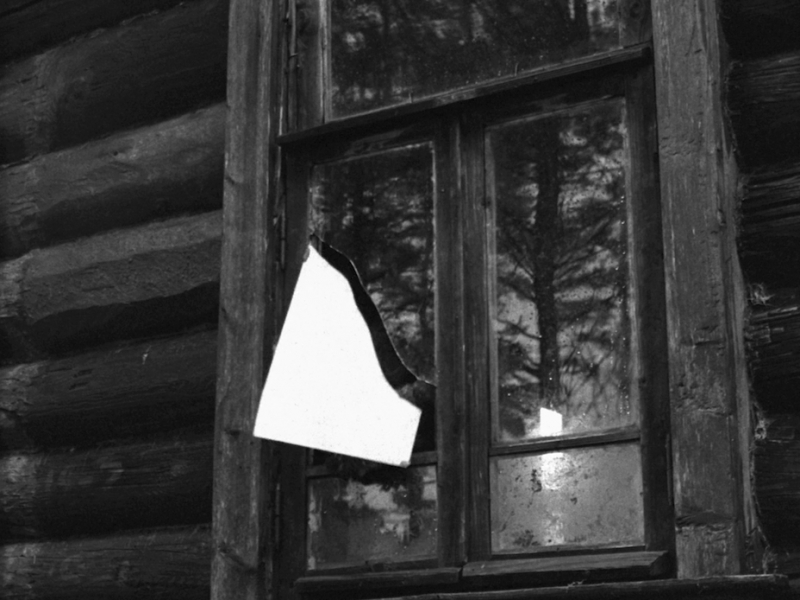Due to the rapid spread of COVID-19 (coronavirus), we regret to inform that the State of Cinema 2020 with Olivier Assayas has been postponed to a date yet to be determined. Ticketholders will be able to use their tickets on the new date or can ask for a refund by sending an email to info@cinema-palace.be.
Cinema Palace will be closing effective from tomorrow, 14 March 2020.
Sabzian will continue to publish articles on a weekly basis, and we’ll keep you informed on new developments concerning the State of Cinema 2020. In the meantime, we hope that everyone remains safe and healthy.
Warm regards,
Sabzian
In 2018, by analogy with similar initiatives in other art forms, Sabzian created a new yearly tradition: Sabzian invites a guest to write a State of Cinema and to choose a film that connects to it. This way, once a year, the art of film is held against the light: a speech that challenges cinema, calls it to account, points the way or refuses to define it, puts it to the test and on the line, summons or embraces it, praises or curses it. A plea, a declaration, a manifest, a programme, a testimony, a letter, an apologia or maybe even an indictment. In any case, a call to think about what cinema means, could mean or should mean today.
After the first two editions (Sarah Vanagt in 2018 and Claudio Pazienza in 2019), Sabzian is honoured to welcome the French filmmaker and author Olivier Assayas for the State of Cinema 2020. Olivier Assayas has chosen Zerkalo [The Mirror] (1975) by Andrei Tarkovsky to accompany his lecture.
This event is organized by Sabzian, Palace, Lumière and LUCA School of Arts. You can buy tickets here.
On 1 July 2020, Lumière will re-release Zerkalo in Belgian theatres.
![Zerkalo [The Mirror] (Andrei Tarkovsky, 1971) Zerkalo [The Mirror] (Andrei Tarkovsky, 1971)](/sites/default/files/Zerkalo_13_1080%20kopie_0.png)
Olivier Assayas (1955) is a French filmmaker, screenwriter and author. He is the son of the screenwriter Raymond Assayas, better known as Jacques Rémy, who increasingly let his son write for him as his health deteriorated. Assayas started his career as an illustrator and graphic designer and was a film critic for several magazines, including Cahiers du Cinéma and Rock & Folk. Through Cahiers he supported the discovery and breakthrough of Asian cinema in Europe. He compiled a special issue on Asian cinema, which allowed him to meet young up-and-coming directors in Hong Kong and Taiwan. He would later also make a documentary about the Taiwanese filmmaker Hou Hsiao-hsien: HHH (1997). Assayas published several books on film, such as Hong Kong (1984, with Charles Tesson), Conversation avec Ingmar Bergman (1990, with Stig Björkman) and Eloge de Kenneth Anger (1999). In 2009, Gallimard published Présences, a collection of his writings on film.
In 1985, Assayas ended his activities as a critic in order to devote himself entirely to filmmaking. After a number of short films, he made his debut in 1986 with his first feature film Désordre. Assayas’ filmography today includes about twenty feature films, including L’eau froide (1994), Fin août, début septembre (1998), Les destinées sentimentales (2000), Clean (2004), Après mai (2012), Sils Maria (2014) and Doubles vies (2019). His most successful film so far was Irma Vep (1996), a tribute to Louis Feuillade, the Nouvelle Vague and Hong Kong cinema. At the 2010 Cannes Film Festival, he presented Carlos, a film about the Venezuelan terrorist Illich Ramirez which was also released as a television series. His most recent film, Cuban Network (2019), premiered at the Venice Film Festival.
Defined by the politics of May 68, the essayist and filmmaker Assayas is writing an eclectic oeuvre, always in the spirit of the French auteur cinema, reflecting the fragmented reality of life in a global economy, and, as Jean-Michel Frodon writes, “at the heart of a mix of influences and a turmoil of times, reflected in his cinema as if he were writing the path of a whole generation in the first person.”


